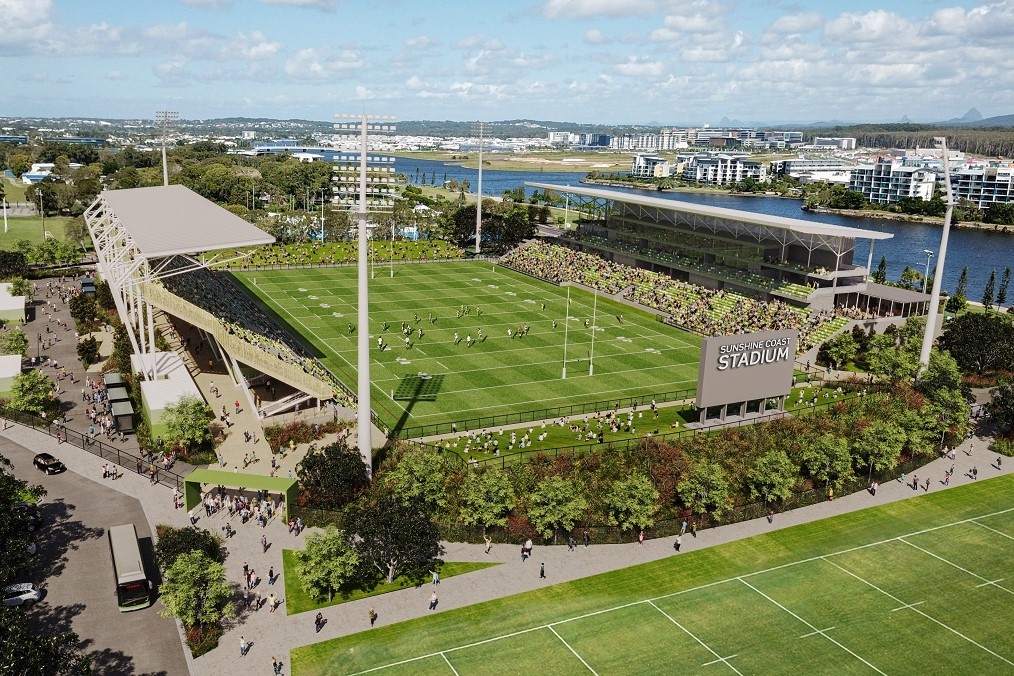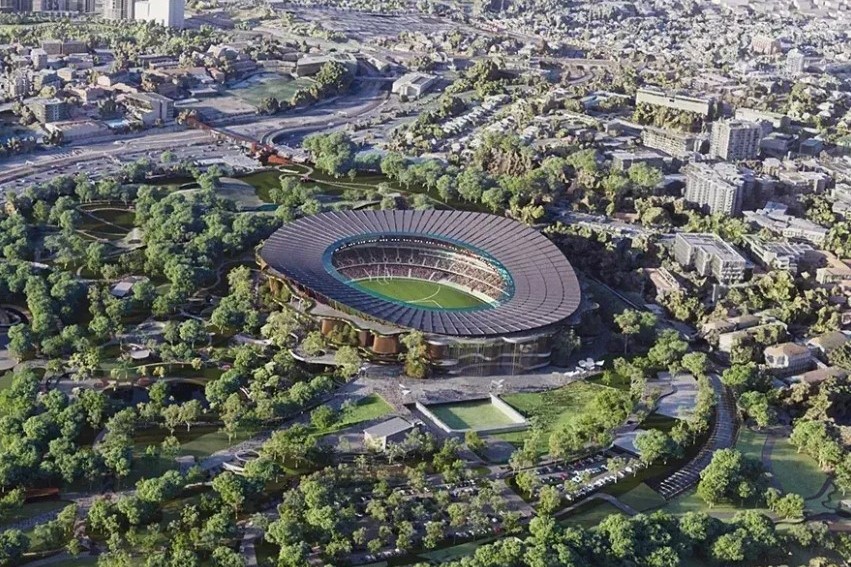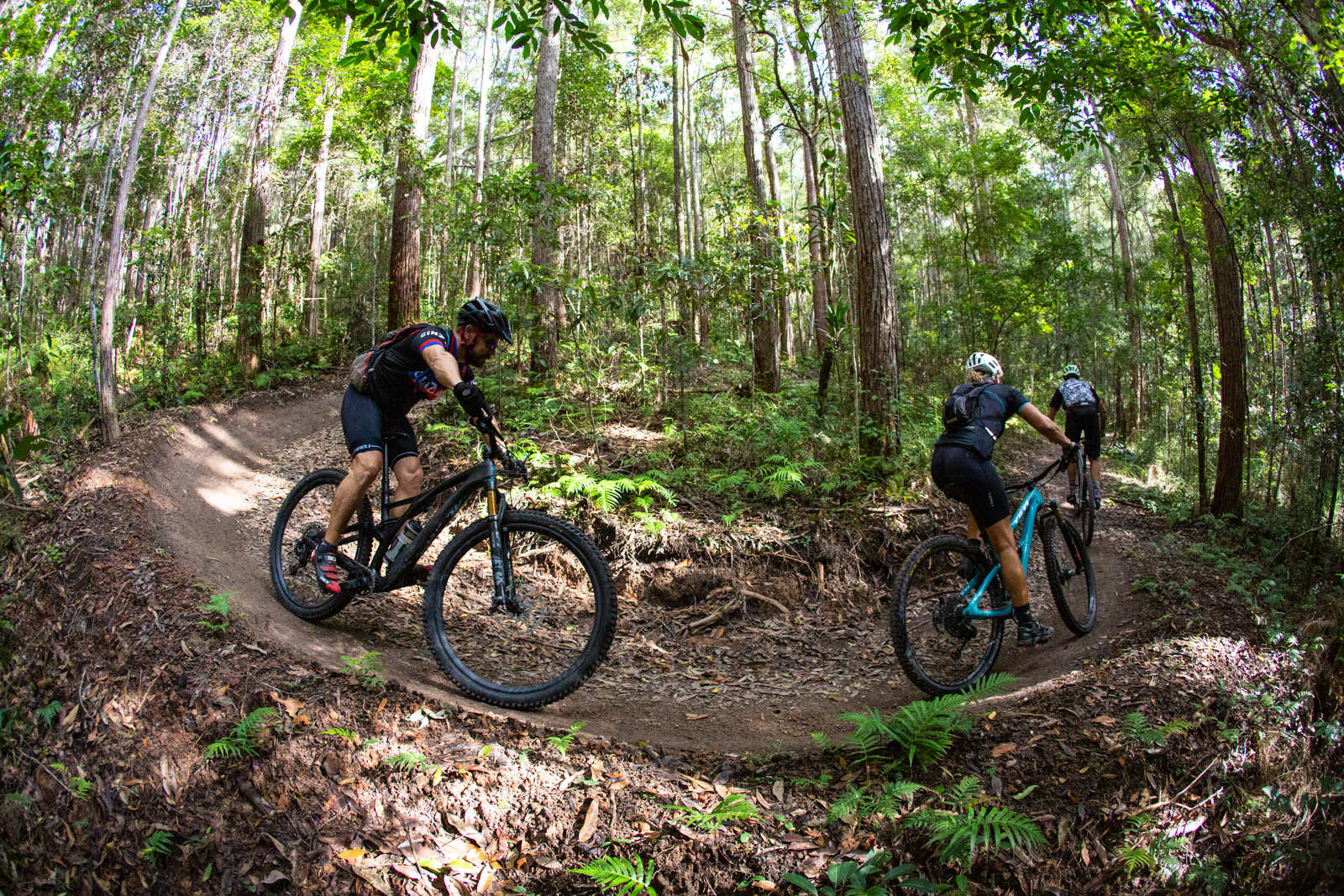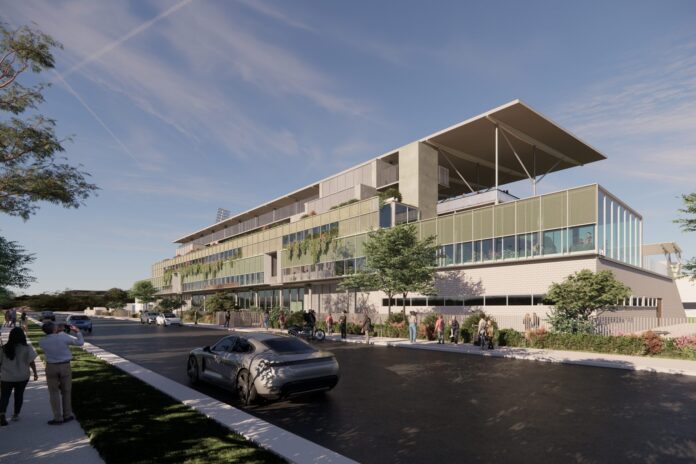A deal locking in billions for the 2032 Olympic and Paralympic Games has been struck between Queensland and the federal government, aimed at giving the event “certainty”, while procurement has been launched for some venues including on the Sunshine Coast.
Queensland Deputy Premier Jarrod Bleijie trumpeted the deal, which includes both governments committing 50-50 funding for minor venues, a full relocation of funding for the Brisbane Arena and $1.2 billion of federal funds towards a main stadium at Brisbane’s Victoria Park.
Funding for the Games is split equally between the state and federal governments under a $7.1 billion envelope.
The federal government is set to invest more than $3.4 billion in the Games – the single largest contribution towards sporting infrastructure in Australia’s history, federal Infrastructure Minister Catherine King said.
“It is about ensuring that when we hand the keys back after the closing ceremony, Queensland has the infrastructure it needs to build on this incredible legacy for decades to come,” Ms King said.
Want more free local news? Follow Sunshine Coast News on Facebook, LinkedIn and Instagram, and sign up for our FREE daily news email.

She said investments would be made in regional Queensland venues that would be “community assets that will serve families for generations.”
“Five projects – Logan Indoor Sports Centre, Moreton Bay Indoor Sports Centre, Barlow Park Stadium upgrade, Sunshine Coast Stadium upgrade and the Sunshine Coast Mountain Bike Centre – have all passed our validation process and with the agreement we have reached are now moving to procurement.
“On the Sunshine Coast, we’re upgrading Sunshine Coast Stadium to more than 10,000 permanent seats and funding a new mountain bike centre that will feature international-standard competition trails set against the backdrop of national rainforest.
“These facilities will drive local tourism and support local businesses long after the Olympic flame has been extinguished.
“But venues are only part of the story. The Commonwealth is also investing $12.4 billion in transport projects that will support the Games.
“This includes Stage 1 of Direct Sunshine Coast Rail, providing a link between Beerwah and Caloundra.”
The Brisbane Arena, which the federal government was set to fund to the tune of $2.5 billion, was scrapped during a 100-day review of the infrastructure plan for the Games.
Mr Bleijie said a market-led proposal for the 17,000-seat arena, with private sector interest, would provide better benefits for taxpayers.

The centrepiece of Brisbane 2032 is a proposed $3.7 billion, 63,000-seat stadium at inner-city Victoria Park. Investigative works at the site have begun, with geotechnical studies and soil sampling ongoing.
Brisbane 2032 boss Andrew Liveris welcomed the agreement and hoped shovels will be in the ground for major venues by the end of 2026.
“Today marks a significant shift in forward momentum following the Queensland government’s announcement in March of its 2032 Delivery Plan,” he said.
The International Olympic Committee has backed the government’s venue plan after several false starts, saying the Brisbane Games are “on the right path”.
But Olympic rowing still faces uncertainty on Rockhampton’s Fitzroy River, with the sport’s international body set to visit the site.
A total of $145.5 million has been allocated to Brisbane Olympic infrastructure in the forthcoming financial year, under Treasurer David Janetzki’s first budget. That figure is set to rise to $1.7 billion over the next four years, including $950 million for construction of the athletes’ villages and $832 million for venue procurement and delivery.
The government recently passed a bill to guarantee Olympic site construction is not impeded, by exempting them from 15 planning laws. These include the Environmental Protection, Queensland Heritage, and Nature Conservation Acts, sparking outrage from advocacy groups.
Sunshine Coast Mayor Rosanna Natoli welcomed the launch of procurement for the upgraded stadium, which will include 10,000 permanent seats, and the mountain bike facility.
“We are incredibly excited that we are good to go for these two projects,” she said.
“These projects will be ready before 2032, then for the Games and into the future.”
The council has committed $17 million for the upgraded stadium.
“It is about creating a legacy, it is about creating communities that thrive, a Sunshine Coast that’s liveable, a place where people want to be and that is what we have here and that is what these projects will deliver.”

The Sunshine Coast Falcons, which competes in the Queensland Cup rugby league competition, will benefit from the upgraded stadium.
Club CEO Chris Flannery lauded the plans for the venue.
“To have that funding locked in for Sunshine Coast Stadium is amazing from a Falcons perspective,” he said.
“To have a world-class stadium like this here on the Sunshine Coast is only going to enhance the juniors and our pathways – hopefully up to the NRL – in years to come.”
Mr Bleijie said the state government and stakeholders were also working on establishing key venues within the Maroochydore City Centre and a multibillion-dollar rail and bus route.
“We are working and partnering with the Sunshine Coast Council and the Walker Corporation to build not only an athletes village but also an arena or convention centre/exhibition centre,” he said.
“We will have it before 2032 in time for the Games and we will be able to catch The Wave (to it). You will be able to catch heavy passenger rail from Beerwah to Caloundra to Birtinya, jump on the metro (bus), go over the Mooloolah River Interchange into the CBD and then right to the Sunshine Coast Airport.”
Mr Bleijie said the state government was “not releasing the individual costings” for Olympic infrastructure projects.
“We want that competition in the marketplace to drive down costs to get the most efficient, the most productive work on these sites,” he said.





